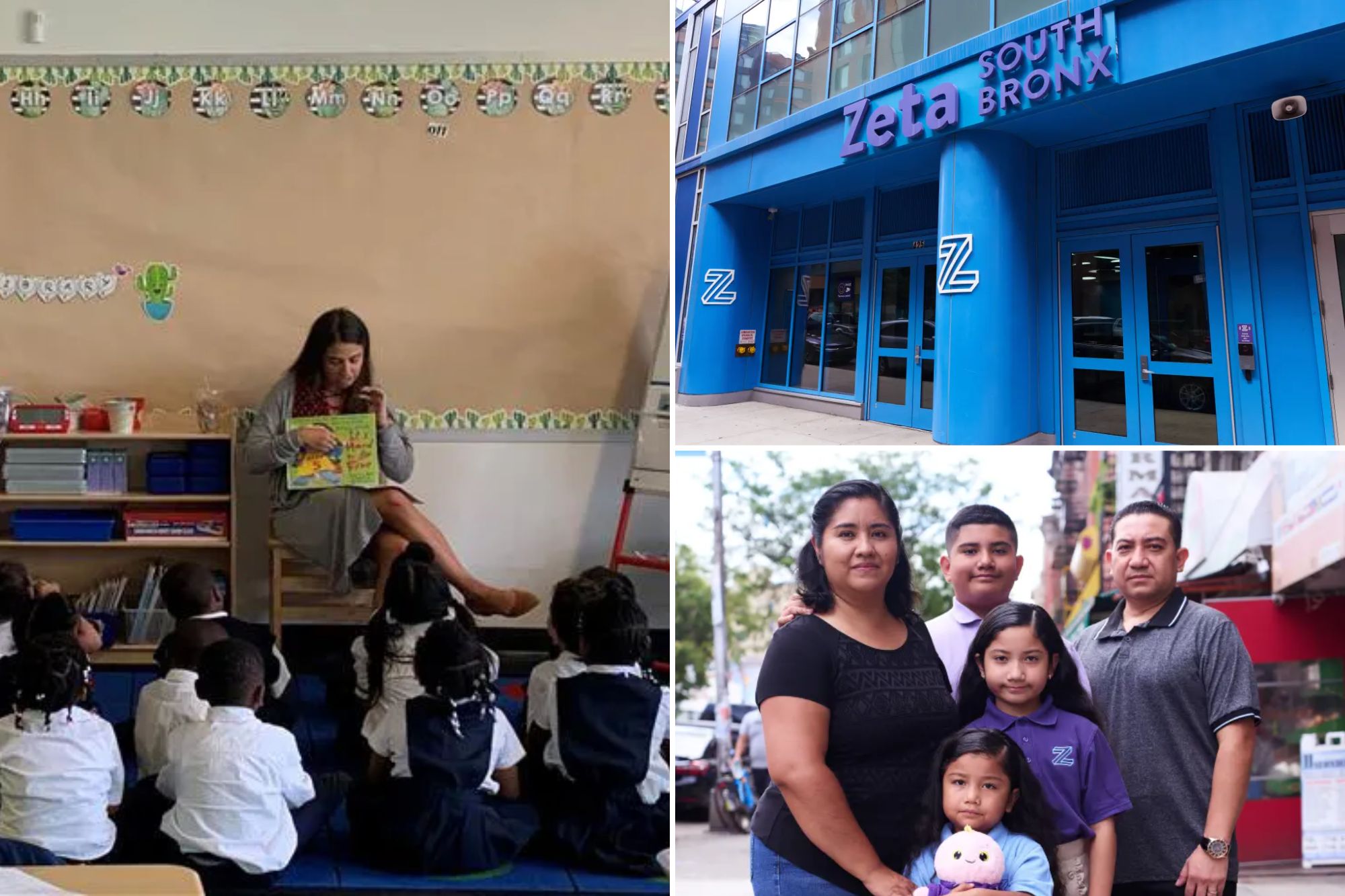
Charter Schools in the Bronx Show Remarkable Academic Success
Charter schools in the Bronx are making significant strides in academic performance, particularly in reading and math. New data reveals that students from charter schools in some of the borough’s most economically disadvantaged areas have achieved pass rates exceeding 90% in certain classrooms. This is a stark contrast to the results seen in traditional public schools in The Bronx, where the pass rates are significantly lower.
According to a review by the Post, the gap between charter school and traditional public school performance is substantial. At Zeta Charter Schools, which operates four schools in The Bronx and two in northern Manhattan, an average of 91.9% of students in grades 3-8 passed the reading exam, while 94.8% aced the math test. For families like Laura Manzano, whose three children attend the Zeta South Bronx K-to-8 school, these results are not just numbers but a reflection of the school's commitment to the whole child.
Manzano shared her experience, stating that Zeta focuses on more than just academics. Her children’s school reported a 93.8% pass rate in reading and a 93.5% proficiency rate in math. This approach has clearly benefited her family, as she expressed a desire for a school like Zeta during her own childhood.
Across all 99 charter schools in the Bronx, 68.6% of students in grades 3-8 passed the English Language Arts exams, compared to only 43.6% for traditional public schools. In math, the difference was even more pronounced, with 69.2% of charter school students scoring proficient, versus 43.3% for their peers in traditional public schools.
Several charter school networks have shown exceptional results. Success Academy’s five Bronx schools saw 100% of pupils pass the math test at Success Academy IV and V, with ELA scores ranging from 92% to 99%. South Bronx Classical Charter schools also performed well, with 95% or more students passing the ELA exam and 96% or more scoring proficient in math.
The Icahn network of seven schools in The Bronx also showed strong results, with 99.5% of students passing both ELA and math exams at Icahn Charter Schools I and IV. These achievements highlight the effectiveness of the charter school model in the Bronx.
Citywide, charter school students outperformed their traditional public school counterparts in both English Language Arts and math. According to the New York City Charter School Center, 67.5% of charter school students scored proficient in ELA, compared to 56.3% for traditional public schools. In math, 68.6% of charter school students were proficient, versus 56.9% for traditional public schools.
Critics argue that despite some improvements, the performance of traditional public schools is still lacking, especially considering the city’s massive education budget. With over $41 billion spent on education and a per-pupil cost of $36,293, which is the highest in the nation, the results are underwhelming. More than 40% of students in traditional public schools scored below proficient in both math and reading.
James Merriman, CEO of the NYC Charter School Center, emphasized that charter schools offer a valuable option for families. He praised the dedication of charter school teachers and leaders who work tirelessly to support their students.
New York City currently has 285 public charter schools serving approximately 150,000 students, representing 15% of the total student population in the city’s public schools. Nearly 90% of these students are Black or Latino, 83% come from low-income families, and 19% have special needs.
Charter schools are publicly funded but privately managed, often offering longer school days and years compared to traditional public schools. Most of their staff are not union members, which differentiates them from traditional public schools.
Despite their success, the Democratic-run state legislature has not lifted the cap on the number of charter schools that can be established in the city. This decision is opposed by the United Federation of Teachers’ union.
Manzano highlighted the supportive environment at Zeta, including parental involvement and small group instruction for struggling students. The school also organizes fun events to reduce stress before exams and includes class trips to cultural institutions like Radio City Music Hall.
Emily Kim, founder and CEO of Zeta Charter Schools, expressed excitement about the test results and announced plans to expand into Queens with new schools in Jamaica and Elmhurst this fall. She emphasized the effectiveness of their academically rigorous, whole-child model.
Lawford Cunningham, superintendent of the Icahn charter network, stressed the importance of hiring and training quality teachers, adopting a rigorous curriculum, and using technology and data analysis to improve outcomes. He noted that the network encourages competition and accountability among staff.
Bronx state Sen. Luis Sepulveda acknowledged the success of charter schools in his district and expressed support for both charter and traditional public schools. However, candidates for mayor in the upcoming November election have not focused on charter schools despite their achievements.
Socialist Democratic nominee Zohran Mamdani has publicly opposed charter schools, while Mayor Eric Adams, running as an independent, did not advocate for increasing the charter school cap. Andrew Cuomo, another independent candidate, supported charter schools during his time as governor but has softened his stance. Republican nominee Curtis Sliwa has not included charter schools in his education plan but has previously supported lifting the cap on charter schools.